Artificial Intelligence (AI) is no longer a concept confined to the realms of science fiction. It has permeated almost every aspect of our lives, bringing about significant changes in how we work, learn, and interact with the world around us. From voice-activated assistants in our homes to complex algorithms driving major industries, AI is shaping the future in ways we could have only imagined a few decades ago.
The rapid advancements in AI technologies are not only enhancing efficiency and productivity but also revolutionising entire sectors. The integration of AI in various domains promises a future where tasks are simplified, processes are optimised, and solutions to complex problems are more accessible. As we stand on the brink of this technological revolution, it is crucial to understand how these advancements can transform our lives and what the future holds.
This blog aims to explore the multifaceted impacts of AI technologies across different sectors. By examining its applications in healthcare, education, business, and daily life, we will uncover the profound changes AI brings and address the ethical considerations that come with it. Join us on this journey to discover how new AI technologies can revolutionise life as we know it.
AI in Healthcare
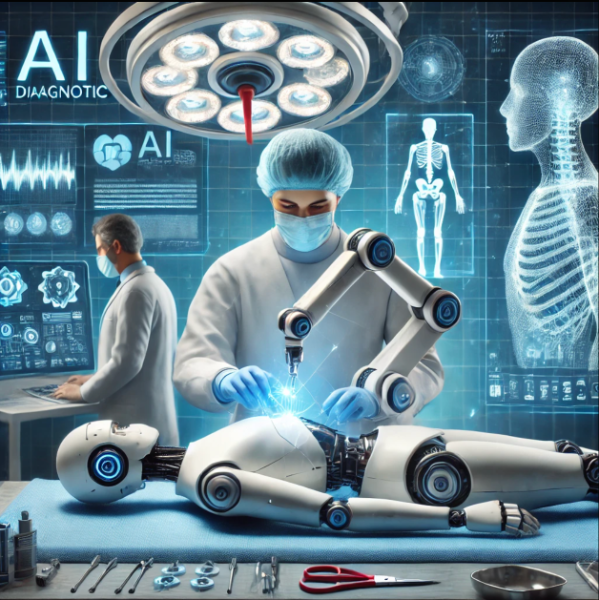
Diagnostic Advancements
One of the most significant contributions of AI in healthcare is its ability to enhance diagnostic accuracy. Machine learning algorithms can analyse vast amounts of medical data, including imaging scans, lab results, and patient histories, to identify patterns that might be missed by human doctors. For instance, AI-powered tools are now capable of detecting early signs of diseases such as cancer, diabetic retinopathy, and heart conditions with remarkable precision. These tools not only aid in early diagnosis but also reduce the likelihood of human error, leading to better patient outcomes.
Personalised Medicine
Personalised medicine is another area where AI is making a profound impact. By analysing genetic information and medical histories, AI can help develop tailored treatment plans that are specifically designed for individual patients. This approach not only enhances the effectiveness of treatments but also minimises adverse reactions. AI algorithms can predict how a patient might respond to a particular medication based on their genetic makeup, allowing for more informed decisions and personalised care.
Robotic Surgeries
The integration of AI in surgical procedures has led to the rise of robotic surgeries, which offer greater precision and control than traditional methods. Robotic systems, guided by AI, can perform complex surgeries with minimal invasiveness, reducing recovery times and improving surgical outcomes. These systems can also provide real-time feedback and adjustments during operations, ensuring optimal performance and minimising risks.
Mental Health Support Through AI
AI is also transforming mental health care by providing accessible and effective support to individuals. AI-powered chatbots and virtual therapists are being used to offer counselling and support to those dealing with mental health issues. These tools can provide immediate assistance, monitor mental health conditions, and even predict potential crises by analysing user interactions and behaviour patterns. By making mental health support more accessible, AI is playing a crucial role in addressing the growing mental health crisis.
AI in Education
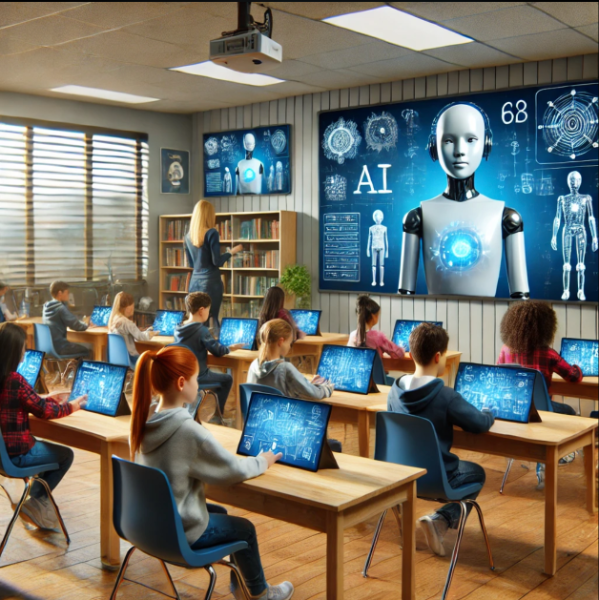
Personalised Learning Experiences
AI is revolutionising education by providing personalised learning experiences tailored to individual student needs. Through adaptive learning technologies, AI can assess a student's strengths and weaknesses, adjusting the curriculum accordingly to ensure optimal learning outcomes. This personalised approach not only enhances student engagement but also helps in closing learning gaps, allowing every student to reach their full potential.
AI Tutors and Educational Chatbots
AI-powered tutors and chatbots are becoming increasingly prevalent in educational settings. These tools can provide instant assistance, answer questions, and offer explanations on a wide range of subjects. By providing round-the-clock support, AI tutors ensure that students can access help whenever they need it, promoting continuous learning and understanding. Additionally, these tools can offer personalised feedback and recommendations, further enhancing the learning experience.
Data Analytics for Student Performance
The use of AI in data analytics is transforming how educational institutions monitor and improve student performance. By analysing data on student engagement, attendance, and academic progress, AI can identify trends and patterns that can inform teaching strategies and interventions. This data-driven approach allows educators to make more informed decisions, ensuring that students receive the support they need to succeed.
Administrative Efficiency and Management
AI is also streamlining administrative processes in educational institutions, leading to greater efficiency and cost savings. From automating routine tasks such as grading and scheduling to managing student records and admissions, AI is reducing the administrative burden on educators and staff. This allows them to focus more on teaching and student support, ultimately enhancing the overall educational experience.
AI in Business and Economy
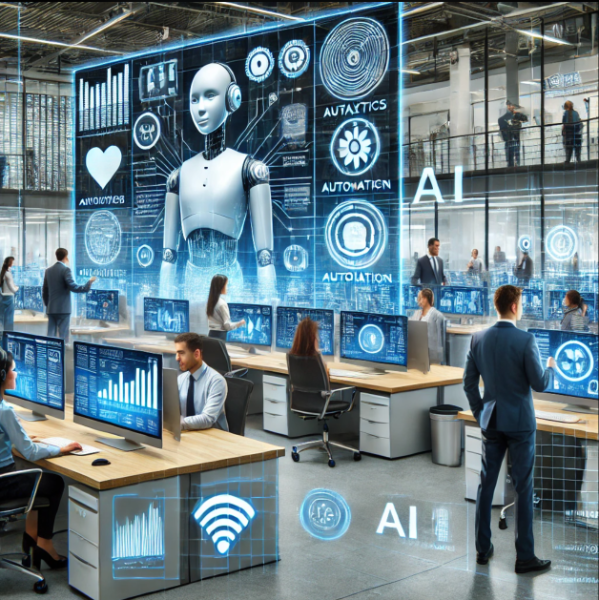
Automation of Tasks and Processes
In the business world, AI is driving the automation of various tasks and processes, leading to increased efficiency and productivity. AI-powered systems can handle repetitive tasks such as data entry, customer service inquiries, and inventory management, freeing up human employees to focus on more strategic and creative tasks. This automation not only reduces operational costs but also improves accuracy and consistency in business operations.
Predictive Analytics for Market Trends
AI's ability to analyse large datasets and identify patterns is transforming how businesses understand and respond to market trends. Predictive analytics powered by AI can forecast future market trends, consumer behaviour, and sales performance, enabling businesses to make data-driven decisions. This foresight allows companies to stay ahead of the competition, optimise their strategies, and better meet customer needs.
AI-Driven Customer Service
Customer service is another area where AI is making significant strides. AI-powered chatbots and virtual assistants can handle customer inquiries, provide support, and resolve issues in real-time, offering a seamless and efficient customer service experience. These tools can also analyse customer interactions to provide personalised recommendations and support, enhancing customer satisfaction and loyalty.
Enhancements in Logistics and Supply Chain
AI is revolutionising logistics and supply chain management by optimising routes, predicting demand, and managing inventory. AI-powered systems can analyse data from various sources to identify the most efficient routes for transportation, reducing delivery times and costs. Additionally, AI can predict demand patterns, allowing businesses to manage inventory more effectively and reduce waste. These enhancements lead to a more efficient and sustainable supply chain.
AI in Everyday Life
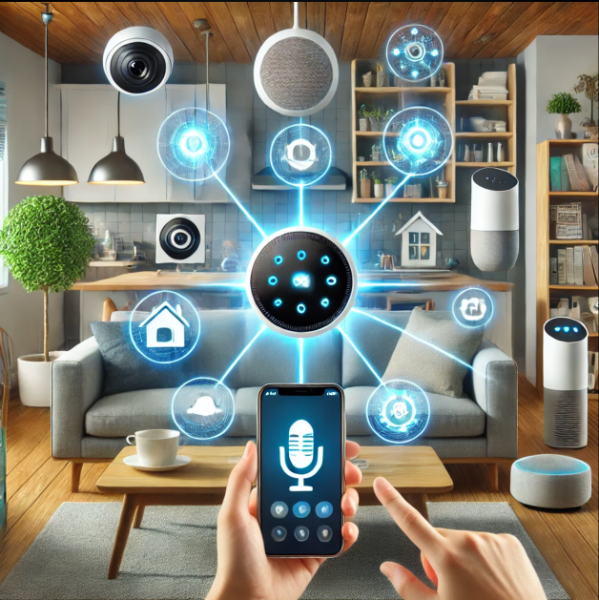
Smart Home Technologies
AI is increasingly becoming a part of our everyday lives through the integration of smart home technologies. From voice-activated assistants like Amazon's Alexa and Google Home to smart thermostats and security systems, AI is making our homes more connected and efficient. These technologies can learn our preferences and routines, adjusting settings automatically to enhance comfort and convenience.
AI in Entertainment and Media
The entertainment and media industry is also being transformed by AI. Streaming services like Netflix and Spotify use AI algorithms to analyse user preferences and recommend content tailored to individual tastes. AI is also being used in content creation, from generating music and art to writing news articles and scripts. This not only enhances the user experience but also opens up new possibilities for creativity and innovation.
AI-Powered Personal Assistants
AI-powered personal assistants are becoming an integral part of our daily lives, helping us manage our schedules, answer queries, and perform various tasks. These assistants, such as Apple's Siri and Microsoft's Cortana, can perform a wide range of functions, from setting reminders and sending messages to providing weather updates and controlling smart home devices. By making our lives more organised and efficient, AI-powered personal assistants are becoming indispensable tools in our daily routines.
Transportation and Autonomous Vehicles
AI is set to revolutionise transportation with the advent of autonomous vehicles. Self-driving cars, powered by AI, are expected to reduce traffic accidents, enhance road safety, and provide greater mobility for those unable to drive. AI is also being used to optimise public transportation systems, from route planning to real-time traffic management. These advancements promise to make transportation more efficient, safe, and accessible.
AI and Ethical Considerations
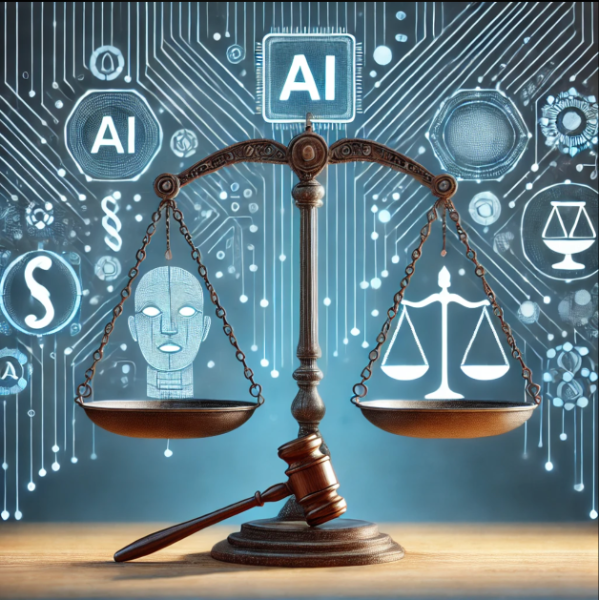
Privacy Concerns
While AI offers numerous benefits, it also raises significant ethical concerns, particularly around privacy. AI systems often rely on vast amounts of data, including personal information, to function effectively. This raises concerns about how this data is collected, stored, and used. Ensuring robust data protection measures and transparency in AI operations is crucial to address these privacy concerns and build public trust in AI technologies.
Bias and Fairness in AI
Bias in AI algorithms is another critical issue that needs to be addressed. AI systems can inadvertently perpetuate existing biases in the data they are trained on, leading to unfair and discriminatory outcomes. Ensuring fairness in AI requires rigorous testing, diverse training data, and ongoing monitoring to identify and mitigate biases. Developing ethical AI frameworks and guidelines is essential to ensure that AI technologies are fair and equitable.
Employment and Job Displacement
The rise of AI and automation has led to concerns about job displacement and the future of work. While AI can enhance productivity and create new opportunities, it also poses a risk to jobs that can be easily automated. Addressing this challenge requires a focus on reskilling and upskilling the workforce, ensuring that workers are equipped with the skills needed to thrive in an AI-driven economy. Policymakers and businesses must work together to create a supportive environment for workers transitioning to new roles.
Regulations and Policies
As AI continues to advance, there is a growing need for robust regulations and policies to govern its development and deployment. Establishing clear ethical guidelines, standards, and regulations is crucial to ensure that AI technologies are developed and used responsibly. This includes addressing issues such as data privacy, bias, transparency, and accountability. By implementing comprehensive regulations, we can harness the benefits of AI while minimising its potential risks.
Future Prospects and Conclusion
Potential Future Advancements
The future of AI holds immense potential, with advancements expected to continue at a rapid pace. From more sophisticated AI algorithms to the development of general AI, the possibilities are vast. Future AI technologies could revolutionise fields such as healthcare, education, and transportation even further, bringing about unprecedented changes in how we live and work.
Long-Term Societal Impacts
The long-term societal impacts of AI are profound, with the potential to reshape our economy, society, and daily lives. AI can drive economic growth, improve quality of life, and address some of the world's most pressing challenges. However, it is crucial to ensure that these benefits are distributed equitably and that the potential risks are managed effectively.
Recap of Key Points
Throughout this blog, we have explored the transformative impacts of AI across various sectors, including healthcare, education, business, and everyday life. We have also discussed the ethical considerations that come with the rise of AI and the importance of developing responsible and fair AI technologies.
Final Thoughts on Embracing AI Technologies
As we move forward, it is essential to embrace AI technologies with a balanced approach, recognizing both their potential and the challenges they pose. By fostering innovation, ensuring ethical practices, and preparing for the future of work, we can harness the power of AI to create a better, more efficient, and equitable world. The revolution of AI is not just about technological advancements; it is about reimagining and improving the way we live, work, and interact with the world around us.
Q&A Section
Q1: What are some practical examples of AI in healthcare?
A1: AI is revolutionising healthcare in several ways:
-
Diagnostic advancements: AI algorithms can analyse medical images and data to detect diseases early and accurately.
-
Personalised medicine: AI can tailor treatment plans based on individual genetic profiles and medical histories.
-
Robotic surgeries: AI-powered robotic systems perform precise and minimally invasive surgeries.
-
Mental health support: AI chatbots and virtual therapists provide accessible mental health care and support.
Q2: How is AI enhancing education?
A2: AI enhances education through:
-
Personalised learning experiences: AI adapts curriculum and teaching methods to individual student needs.
-
AI tutors and chatbots: These tools offer instant assistance and personalised feedback to students.
-
Data analytics: AI analyses student performance data to inform teaching strategies and interventions.
-
Administrative efficiency: AI automates routine tasks, allowing educators to focus on teaching.
Q3: What impact does AI have on business and the economy?
A3: AI impacts business and the economy by:
-
Automating tasks: AI handles repetitive tasks, increasing efficiency and reducing costs.
-
Predictive analytics: AI forecasts market trends and consumer behaviour, enabling data-driven decisions.
-
Customer service: AI-powered chatbots provide efficient and personalised customer support.
-
Logistics and supply chain: AI optimises routes, predicts demand, and manages inventory more effectively.
Q4: How does AI improve daily life?
A4: AI improves daily life through:
-
Smart home technologies: AI-powered devices like smart thermostats and security systems enhance comfort and security.
-
Entertainment and media: AI algorithms recommend personalised content on streaming services.
-
Personal assistants: AI assistants like Siri and Alexa help manage schedules and perform various tasks.
-
Autonomous vehicles: AI is driving the development of self-driving cars, improving transportation safety and efficiency.
Q5: What are the ethical considerations associated with AI?
A5: Ethical considerations in AI include:
-
Privacy concerns: Ensuring data protection and transparency in AI operations.
-
Bias and fairness: Addressing biases in AI algorithms to prevent discriminatory outcomes.
-
Employment impacts: Managing job displacement through reskilling and upskilling the workforce.
-
Regulations and policies: Developing robust guidelines and regulations to govern AI development and use.
Q6: What future advancements can we expect from AI?
A6: Future advancements in AI may include:
-
Sophisticated algorithms: Development of more advanced and general AI systems.
-
Healthcare innovations: Further breakthroughs in diagnostics, treatment, and personalised medicine.
-
Educational tools: Enhanced AI tools for personalised and immersive learning experiences.
-
Transportation: Continued advancements in autonomous vehicles and optimised public transportation systems.
-
AI ethics: Improved frameworks for ensuring ethical and responsible AI use.
 Your Guide to Cybersecurity
Your Guide to Cybersecurity
 Your Essential Guide to VPNs: Protect Yourself Online Today
Your Essential Guide to VPNs: Protect Yourself Online Today
 Dubai: Aiming to Be One of the Top 10 IT Hubs Globally
Dubai: Aiming to Be One of the Top 10 IT Hubs Globally
 What is Blockchain Technology Solutions for Cloud Security?
What is Blockchain Technology Solutions for Cloud Security?